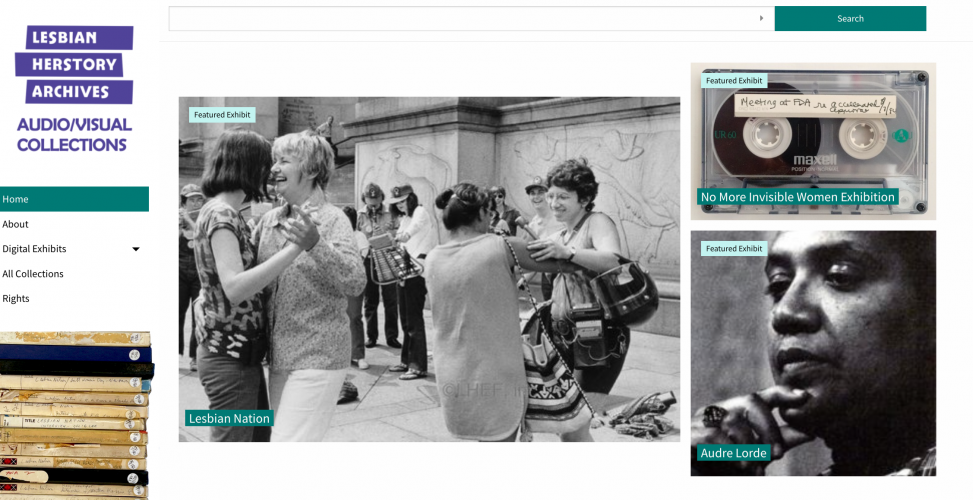In this presentation, Jessica Haba and Bonnie Whitehouse will discuss their work of curating and describing LGBT audiovisual collections housed at the Lesbian Herstory Archives. They will discuss representing collections online, employing metadata standards, and addressing culturally sensitive topics.
Within this project, the curatorial team took on various responsibilities, such as content organization, background research, and summarization, in order to curate audiovisual files from multiple donors into comprehensive collections. As a team, we focused on the ethical, contextual, and descriptive elements of the files to provide unbiased descriptors to future users without ignoring the potential offensive content held within. Our experiences have taught us that it is the responsibility of curation to pay homage to the activists, artists, and thinkers who came before us. It is only through working together with digitization and metadata that we can increase the discoverability of marginal histories and truly curate collections that put humanity and conscientiousness at the forefront.
For this project, the choices made about the language and structure of the metadata were informed by the content and medium of the collection itself, as well as discussions with the larger INFO 665 class, and the mission statement of the Lesbian Herstory Archive. Gathering metadata required involvement and action at each step of digitization and curation to ensure that any information discovered in those processes could be made available to the user as metadata to add context to the digitized item itself. Our experience supports the idea that metadata is not something that is assigned to an archival collection, but something that lives inside the collection and can be brought forward to aid in discoverability.
[avatar user=”bwhiteho” /]
[avatar user=”jhaba22″ /]
